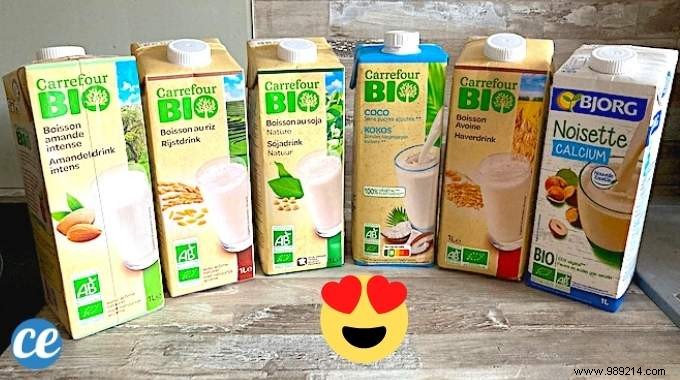
Have you ever heard of vegetable milks ? No more than that ?
Well today, I intend to show you all the benefits of consuming it daily.
A real alternative to animal milk (including cow's milk!), vegetable milk contains lots of good nutrients.
A chance when you know that traditional milk is not as natural as they say (presence of GMOs...)!
In any case for me, it has revolutionized my daily life. Finish my Lactose intolerance and digestive problems.
I am so satisfied with it, that I offer you a small comparison of the best milks and their benefits. Watch:

Before going into the details of the different vegetable milks, let's see what their main advantages are.
1. Vegetable milk does not contain lactose
And that's good news for fragile stomachs.
In fact, vegetable milk is made from crushed cereals or fruits mixed with water.
There is therefore no lactose as in conventional dairy products.
Only sugar and vegetable oil can be added to thicken it or enrich it with calcium.
Ah yes; vegetable milk also contains less fat (lipids) and sugars (carbohydrates).
Very practical when you want to lose weight during a diet!
2. The fats present in vegetable milk are very healthy
This is particularly the case for vegetable milks from dried fruits (almond, coconut, hazelnut).
When I say good fat, I mean mono fats and polyunsaturated .
Translation:they are very beneficial fats for the cardiovascular system.
3. Vegetable milk does not contain cholesterol
Animal milk, especially cow's milk, contains cholesterol.
This amount of cholesterol differs according to the type of milk consumed (whole, skimmed and 1/2 skimmed).
With vegetable milk, no question to ask:there is simply none.
4. Vegetable milk is a source of vitamins and minerals
Whether it comes from dried fruit or cereals, this drink is by definition of plant origin.
It is therefore very rich in vitamins and minerals.
5. Vegetable milk does not contain gluten
Most plant-based drinks do not contain gluten.
This is particularly the case for vegetable almond, soy or quinoa milk.
People sensitive to gluten can therefore drink it without moderation.
Please note that this is not the case for oat or spelled milk.
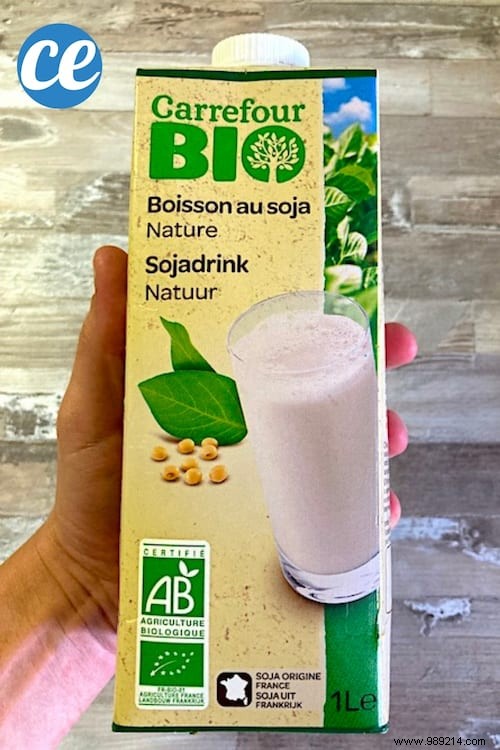
When we talk about vegetable milk, we necessarily think of soy milk.
Probably because it is an ancestral drink often used in cooking elsewhere.
Its "all-purpose" taste blends easily with savory/sweet preparations made from animal milk.
Soy milk is full of benefits because it is full of vegetable protein, fiber and polyunsaturated fatty acid.
In other words, it helps lower cholesterol .
In addition, soy proteins (isoflavones) preserve bone capital.
In summary, soy milk is totally recommended:
- to vegans and vegetarians.
- people who cannot tolerate cow's milk and lactose.
For the recalcitrant, know that this milk comes in chocolate, strawberry and even vanilla flavors.
Conversely, soy milk is contraindicated :
- For children under 3 and pregnant women.
The presence of isoflavones, binding to estrogen receptors, can indeed disrupt the hormonal system.
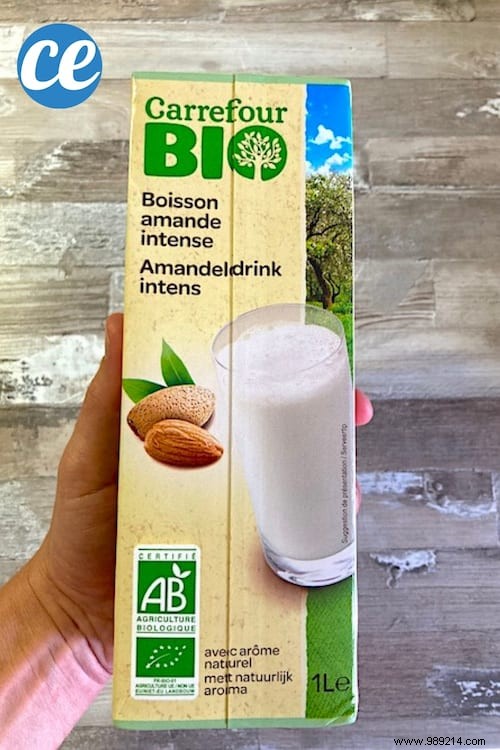
Lacking in lactose and saturated fat, almond milk perfectly replaces cow's milk.
It digests very well and blends perfectly with sweet culinary compositions.
Once you've tasted it, you can't live without it.
I can tell you that its tasty and smooth taste appeals to the whole family.
Just know that during its manufacture, almond milk is enriched with calcium.
Because when the raw almond is crushed, it loses this substance.
In summary, almond milk is recommended:
- to vegans and vegetarians.
- people who cannot tolerate cow's milk and lactose.
Conversely, almond milk is contraindicated :
- to all people intolerant to nuts.
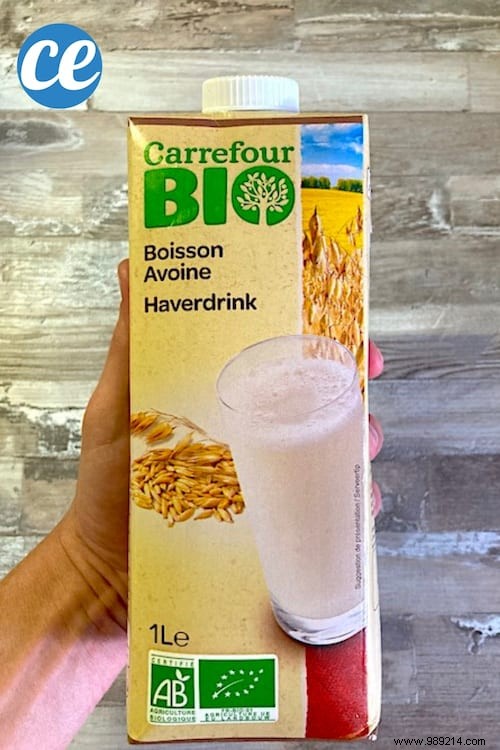
As the name suggests, oat milk is the derivative of the oat cereal.
It is therefore rich in fiber and complex carbohydrates .
And that's perfect for a champion breakfast!
You can take it in smoothie or porridge.
This milk boosts the brain without the blood sugar rising in the towers.
A bit like spelled milk by the way.
And to top it off, oat milk gives your intestinal transit a boost.
Know that quinoa milk is close to the properties of oat milk, but without gluten.
In summary, oat milk is recommended:
- to vegans and vegetarians.
- people who cannot tolerate cow's milk and lactose.
- people who prefer energizing and balanced breakfasts.
Conversely, oat milk is contraindicated :
- people who should not consume gluten. Even if the gluten of oat cereal is less strong than that of wheat.
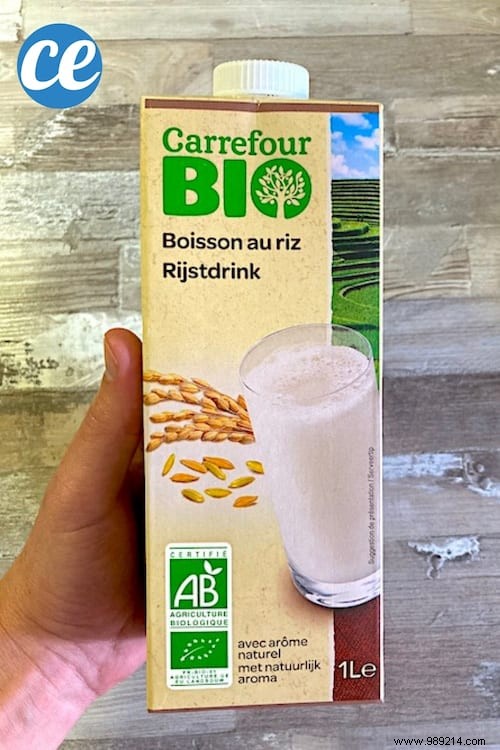
I don't know about you, but my kids love rice milk.
You will tell me, it's quite normal since its taste is naturally sweet.
Be careful though, manufacturers sometimes add sugar to the composition.
Choose rice milk without added sugar .
Other than that, rice milk has nothing but benefits.
It is rich in carbohydrates to give the body the necessary energy and in silica to fix calcium.
In summary, rice milk is recommended:
- people wishing to gradually switch from animal milk to vegetable milk.
Know in this regard that rice milk also comes in vanilla, strawberry and chocolate flavors.
Conversely, rice milk is contraindicated :
- to people who must contain their daily sugar quota.
Click here to find out how to make it yourself.
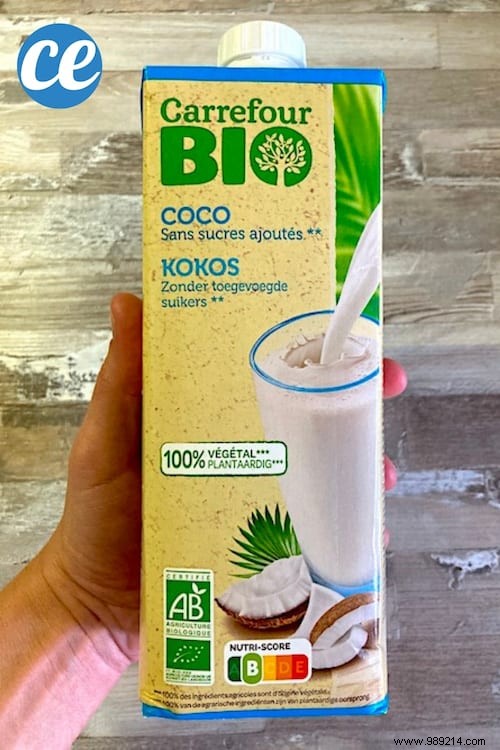
First of all, do not confuse coconut milk with vegetable coconut drink.
If the 1st substance is mainly used in cooking, the 2nd is naturally and deliciously flavored.
It goes very well with sweet dishes (cakes or smoothies).
But also with more exotic dishes (rice, lentil dhal).
So yes, coconut is saturated with fat.
Nevertheless, its fats bring very good things to the body and to the cardiovascular system in general.
This vegetable drink also contains a lot of fiber.
And that's perfect for transit and to help better control your weight.
Finally, it is a so-called isotonic drink; that is to say perfectly moisturizing.
In summary, coconut milk is recommended:
- for athletes and pregnant women.
It is indeed a remineralizing drink.
Conversely, coconut milk is contraindicated :
- obviously, to people allergic to coconut.
- to people who digest this substance badly.
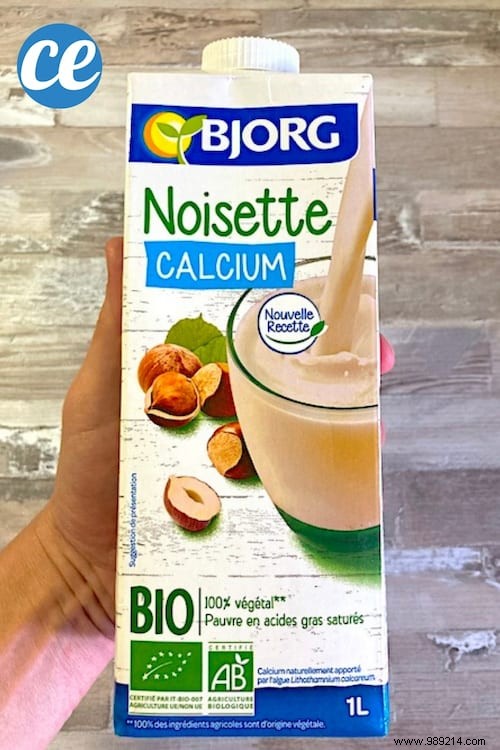
I don't know if you've ever tasted hazelnut milk?
But I find it for my part really excellent! In addition, it is very easily digested.
And as with other vegetable milks, its properties are rich in vitamins and minerals.
Hazelnut milk will also provide monounsaturated fatty acids.
These fats help to protect the nervous and cardiovascular systems.
Hazelnut milk is otherwise somewhat similar to chestnut milk.
They are creamy, full of flavor and above all gluten-free.
In summary, hazelnut milk is recommended:
- people allergic to gluten.
- growing children and adolescents (hazelnut milk is rich in phosphorus and calcium).
- to pregnant women since hazelnuts contain folic acid.
Conversely, hazelnut milk is contraindicated :
- to people who cannot bear nuts.